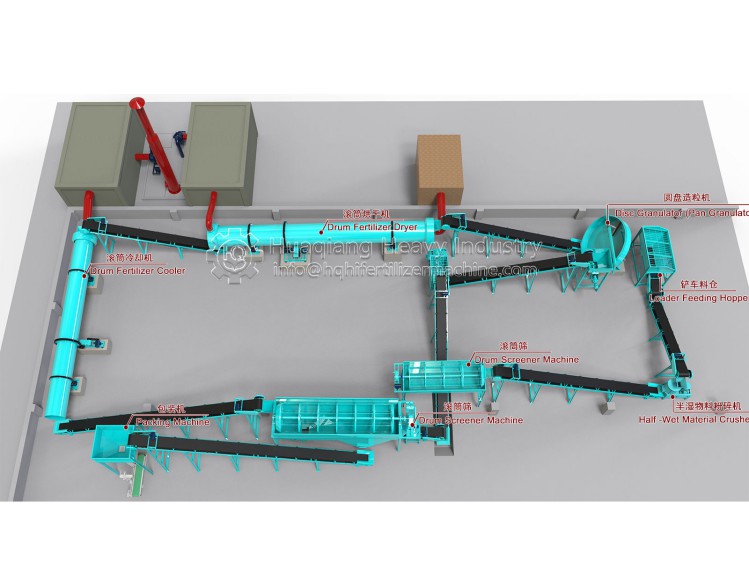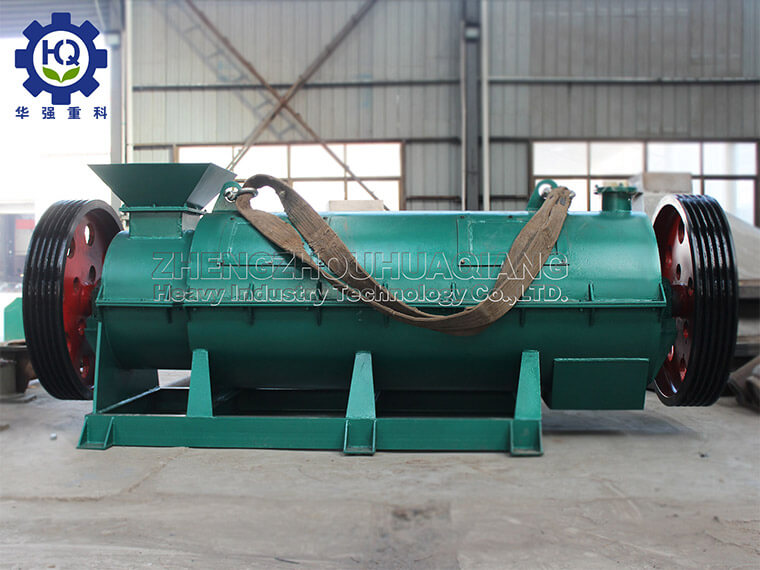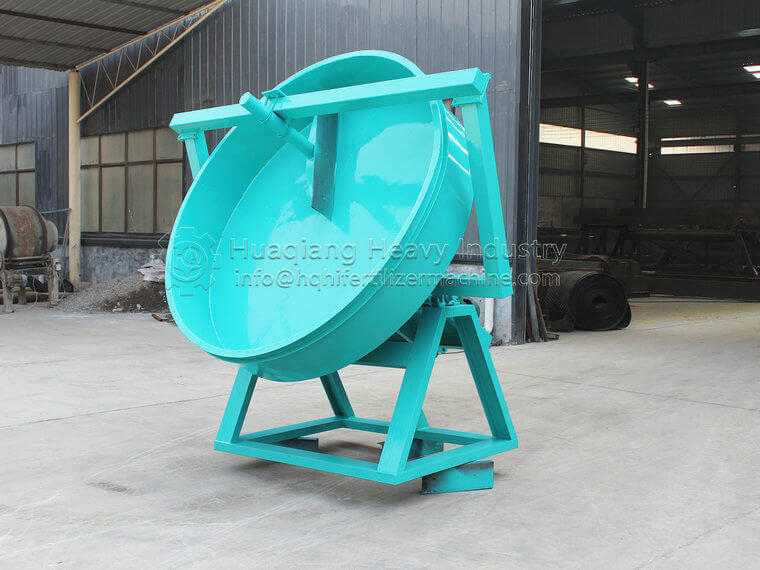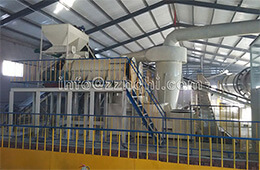The produced by organic fertilizer granulator machine is granulated, the granules are complete, the granules are solid, and no binder is required during granulation. The content of organic matter can reach 100%. The organic matter after fermentation does not need to be dried. between. And it is completely environmentally friendly and pollution-free during the granulation fertilizer manufacturing process.
Through learning and drawing on the principles of foreign advanced granulators, after repeated research and experiments of our company, we finally overcome the problems of the past granulators such as poor granulation, sticking to the wall, and difficulty in drying. Organic fertilizer granulator, the organic fertilizer produced by our granulator has low water content, easy to dry, and beautiful granules.
Features of organic granulator:
1. The granulator has no drying process, granulation at room temperature, one-time molding, less investment, quick results, and good economic benefits.
2. The granulator has small power, reliable operation, no three waste emissions, stable operation, convenient maintenance, reasonable process layout, advanced technology and low production cost.
3. The granulator has wide applicability, and can be used for granulation of various raw materials such as compound fertilizer, medicine, chemical industry, feed, coal, metallurgy, etc., and can produce various concentrations and types (including organic fertilizer, inorganic Fertilizer, biological fertilizer, magnetic fertilizer, etc.) compound fertilizer.
4. Granulators, especially rare earth, ammonium carbonate, and ammonium sulfate compound fertilizer granulation, fill the gaps in the country and occupy the domestic leading level. It is a national environmental protection technology promotion project.






.jpg)

